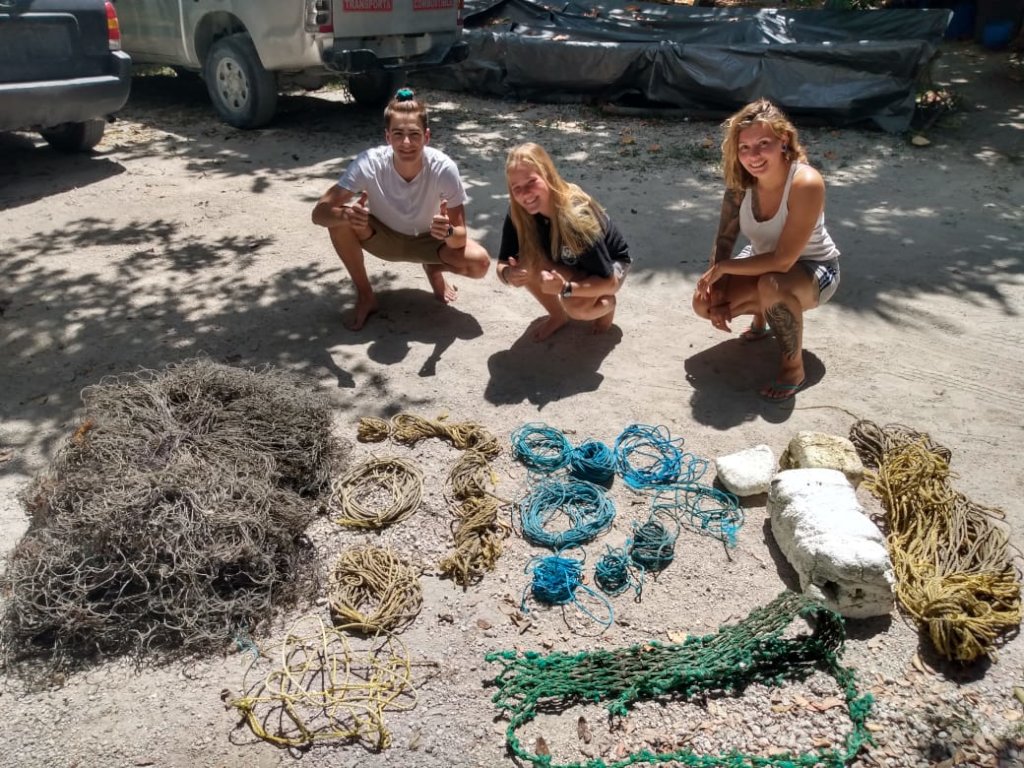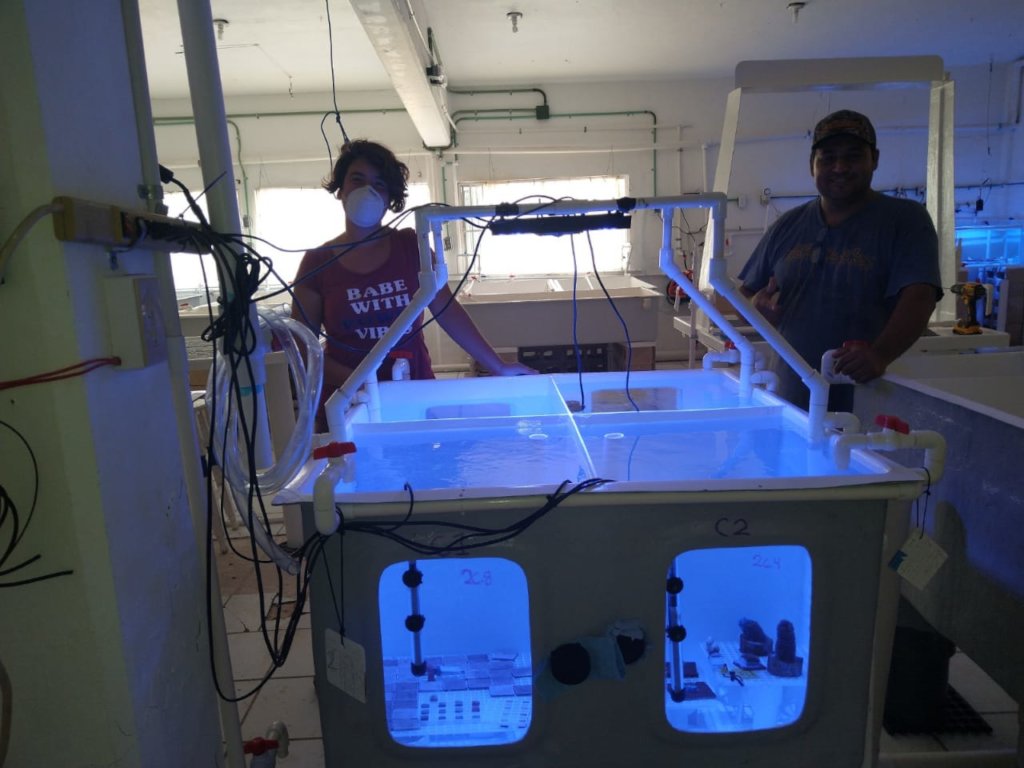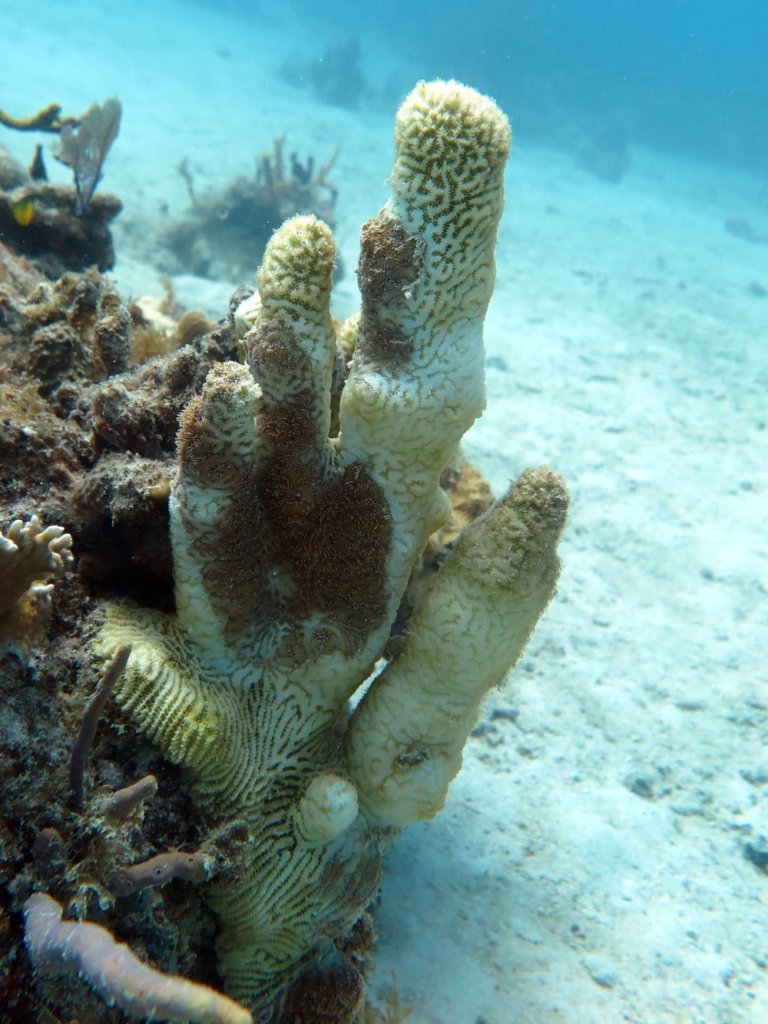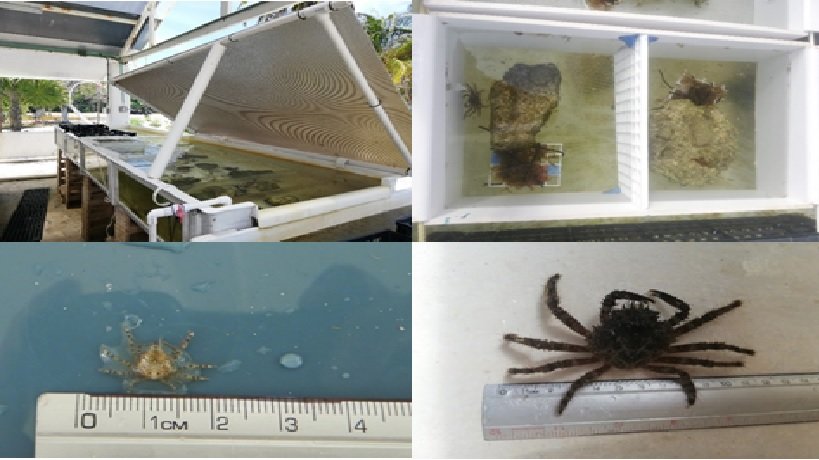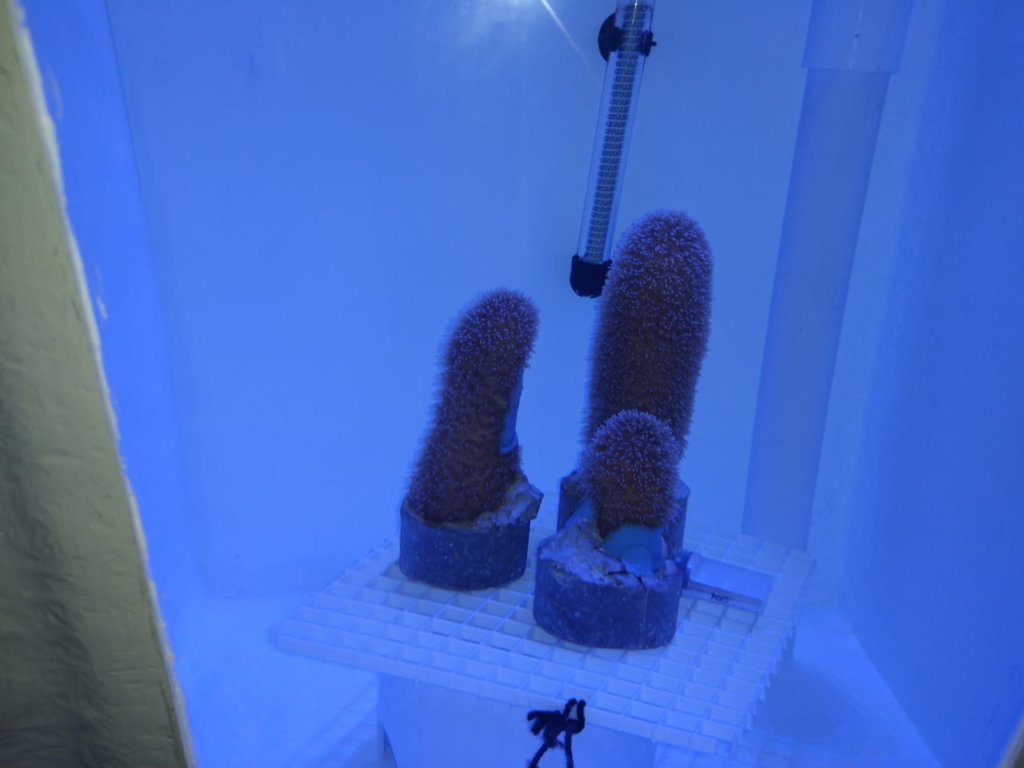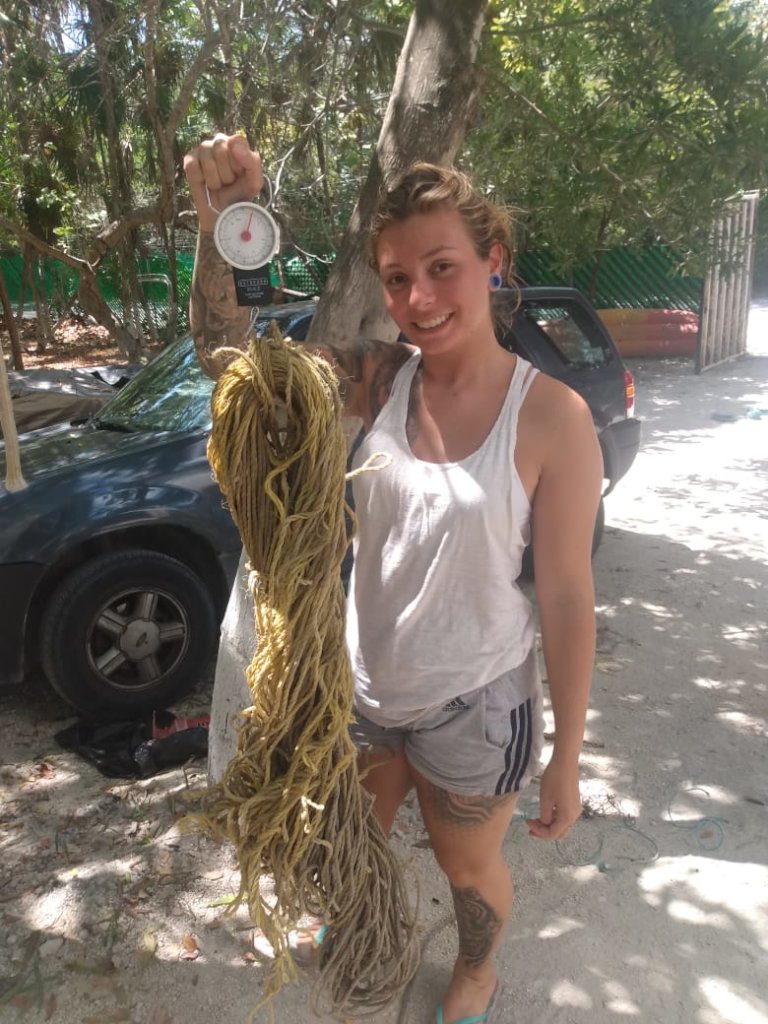By Miguel Angel Lozano Huguenin | Program Manager
Dear Supporters,
Conserving and restoring the Mesoamerican coral reef system has continued unfazed during the COVID 19 contingency. Even though during this event negative anthropogenic impacts have decreased due to less human activities it has also created a challenge to our commitment to continue with the ongoing projects to help conserve and restore this magnificent ecosystem.
Continuing work with our in country partner CRIP (Regional Research Center of fisheries), this quarter we have strengthened our collaboration by continuing activities in our base inside the installations of CRIP in Puerto Morelos. In the first three months of this year, 28 participants have had the opportunity to create a positive impact while collaborating with the ongoing coral reef restoration program of our partners. Staff and volunteers daily have an opportunity to generate a positive impact by working side by side with the researchers from CRIP in the laboratory cloning corals and helping out in the maintenance of the small coral colonies while they reach the size required for them to be transferred to the coral nurseries in the ocean.
This quarter we have started a new project with our in country partners. Caribbean coral reefs are increasingly dominated by macroalgae instead of corals due to several factors, including the decline of herbivores. As an integral part of the coral reef restoration project in Puerto Morelos, our in country partners CRIP and the Healthy Reef for Healthy People initiative started a marine aquaculture project for Caribbean king crab (Maguimithrax spinosissimus). This species of crabs prefers fleshy macroalgae, but it also consumes relatively unpalatable calcareous algae. Per capita grazing rates by this species exceed those of most herbivorous fish, but these crabs often occur at low densities on reefs and its foraging activities are reduced in predator-rich environments. In layman terms, this species of crabs are great gardeners and caretakers of the coral reef, even better than herbivore fish, but its numbers are low and thus have a location specific impact on the macro algae.
The main objective of the project is to rear Maguimithrax spinosissimus juveniles to a sufficient size, and number, in order to be used during coral restoration programs to increase the survival of transplanted fragments or recruits by actively counteracting macroalgae proliferation.
On another subject, due to the negative impact created by the Stony Coral Tissue Loss Disease (SCTLD) or white syndrome, as this coral disease is also known, some species of reef building corals are facing extinction. Pillar corals (Dendrogyra cylindrus) are one of the most affected species of corals by SCTLD. Where they once were a common site to see during dives in the Mesoamerican coral reef, now one is hard pressed to find a living colony of this species of corals. In an effort to preserve and hopefully restore the population of this corals, our team has helped by location two healthy live colonies from this species. The coral colonies were extracted from the reef and transplanted to tanks in the CRIP´s laboratory to generate more biomass of this corals through cloning by fragmentation.
During our scuba dive activities we sometimes find ghost nets, fishing equipment lost by fishermen that continues to kill marine life while it drifts in the sea. During this quarter one of our dive teams found such a ghost net and was able to extract it from the ocean and bring it back to base where it was put apart, weighted and the information registered. At this particular time the total weight of the material was 12.7 kilograms, some of which were ropes that the team were able to salvage to be reused in base necessities .
All of this work has been carried on besides the coral reef ecosystem monitoring that we undertake. Volunteers undertook science training and so far our team has been able to monitor 1 different site using the Atlantic and Gulf Rapid Reef Assessment (AGGRA) system. The data collected thought this monitoring activities is transmitted to our in country partners (CRIP, HR, CONANP) to help them determine the health of the reef ecosystem and assist them on management decisions for this ecosystem.
Even though in March of this year our base had to be put in hibernation and prevented from receiving participants from offshore due to the COVID 19 pandemic, our team has shown its commitment to marine conservation by continuing to collaborate with our partners through this hard times.
We have accomplished a lot of our goals in collaborating with our in-country partners in the main objective of the conservation of some of the coral reefs communities of the Mesoamerican Reef System. Helping out in the field and laboratory activities in the process of conserving this wonderful marine ecosystem. Specially by being able to get our volunteers involved hands on different tasks that are involved in this process of conservation, but the most important part, giving our volunteers and people from the local community an opportunity to learn about the coral reef ecosystem, its importance economically, socially and environmentally. Through these actions we have been able to create a clear picture and conscience of the need to work on the conservation and restoration of this ecosystem. We still have a long way to travel to be able to accomplish our goals. The coral reef restoration program has an ambitious objective of transplanting 260’000 new corals by the year 2021. We are still a long way from this objective but with the generous help from our supporters and donors we can continue working to achieve this objective.
As always, all of this wonderful work couldn’t have been accomplished without the help of our supporters and supporters, a great shout out to you all!!! Thank you!!!
With Gratitude,
Mexico Marine
By MIGUEL ANGEL LOZANO HUGUENIN | Program Manager
By Miguel Angel Lozano | Program Manager
Project reports on GlobalGiving are posted directly to globalgiving.org by Project Leaders as they are completed, generally every 3-4 months. To protect the integrity of these documents, GlobalGiving does not alter them; therefore you may find some language or formatting issues.
If you donate to this project or have donated to this project, you can receive an email when this project posts a report. You can also subscribe for reports without donating.
Support this important cause by creating a personalized fundraising page.
Start a Fundraiser